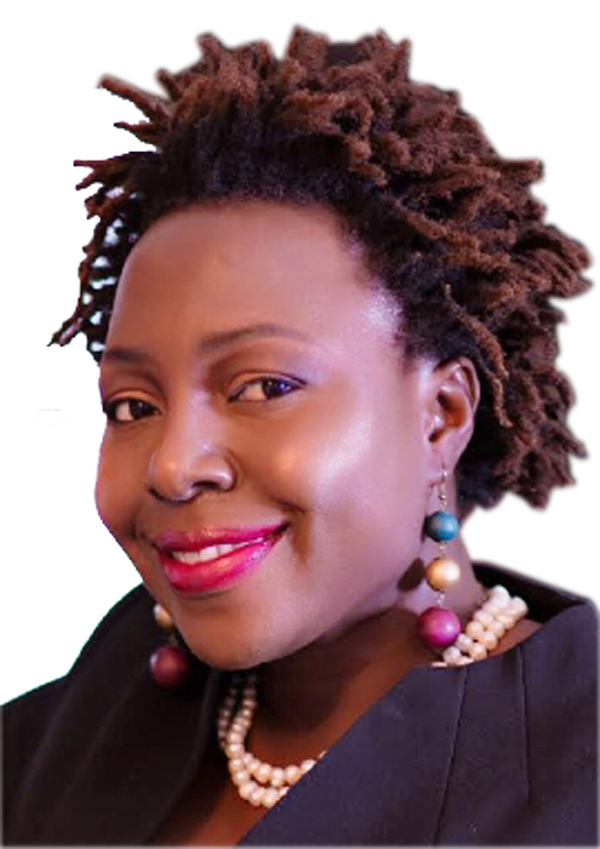
I was having a conversation with a 13-year-old boy called Michael in one of our clubs and I asked him, “What do you think is gender equality”, and the way he answered left a lot to be desired. It was at Rusununguko High in Shurugwi where we had gone for our training programmes on harmful religious and cultural practices that often expose girls to vulnerabilities socially, economically, emotionally and health issues like HIV.
Women & Development by Nyaradzo Mashayamombe
“It is ‘the equalisation’ between girls and boys where they both get equal opportunities in their lives,” Michael said. What struck me was the word “equalisation” which he used. Michael grew up watching soccer or listening to it on radio. It is in soccer that you often hear the word “equaliser”.
I admired everything about him, the fact that he was in rural Zimbabwe, but there are things already that he identifies with strongly, like soccer, whose phrases he can use in any situation that he thinks applies. Isn’t that the law of socialisation? Where whatever you are exposed to, or whoever you are exposed to becomes who you are and identify with.

Our boys grow up being socialised around issues of how strong a man should be, and that kind of strength that I am talking about is that of physique and not showing emotions. The boys are taught not to cry when they face pain because they are told “men don’t cry”. In those moments they are taught to be aggressive and traces of violence begin to crop into their character, because if they can’t cry, where is the anger going to?
They are also taught that you do not behave like a girl. In many instances for example, cooking or cleaning the house is a preserve for girls. They are told that these are girl issues. They are taught to be in charge, but the “in charge” of it is often negative masculinities where again it’s about being forceful, most often arrogant and we wonder why we have aggressive husbands, violent boyfriends and men who do not know how to deal with anger.
Today, I chose to focus on “What if we catch them young?” What if we catch them young and challenged the status quo that has exposed our boys and men to unwanted divorces because nobody stays voluntarily in an abusive relationship? What if we catch them young because we do not want our boys to end up in prison for beating up their wives or girlfriends, even worse for killing them?
- Chamisa under fire over US$120K donation
- Mavhunga puts DeMbare into Chibuku quarterfinals
- Pension funds bet on Cabora Bassa oilfields
- Councils defy govt fire tender directive
Keep Reading
I will talk about what if we catch our girls young too next week, because this isn’t just about the boys or men, but about our children. What if we catch them young is about parenting and instilling positive masculinities in our boys to be better lovers and fathers. It is also about bringing up empowered girls who know they can do all things because they can, and that there are no limits for them. This is also about parenting that questions the status quo and choosing to raise game changers in both our boys and girls, fostering positive development for our communities.
So coming back to my friend Michael’s story, what is equality? Not in very complex development lingo, but in the most simple manner understood by any laymen. Equality simply means the respect of all human beings as equal or the same, deserving of respect the same way the next person would expect. In the simplest of terms, it means that girls and boys, women and men receive the same treatment in everything.
It means when they grow up in their family, both girls and boys feel that they are equally children before their parents and that there is no one obtaining more special favours than the other. When resources are scarce, they are equally distributed among children without preferring the boy child. When there is housework both girls and boys should share equally, so that they both get time to play and rest since it is part of their growing and developing. It means when they are at school, girls and boys are receiving similar work and and encouragement. It means they are allowed the benefit that every person receives in every sphere, including the belief by people like teachers that someone is well able if they are a girl to perform well in mathematics as well as boys can.
Today’s discussion was what if we catch them young, especially looking at our boys. Instilling good morals, humanity, respect for others, especially girls and women, teaching them to share and making them realise that it’s not always about them, will change this country and this world. We suffer today in this world from selfish leadership who, when they take positions, think that life is all about them, that they begin to selfishly gain and benefit from positions and yet it should be about the people. It comes back to parenting and the way one has been raised. The very reason the world is negotiating constantly about engaging women in leadership is because women often share resources better and they are often not selfish, to the destruction of those they lead. What if we catch them young?
Nyaradzo “Nyari” Mashayamombe is the founder and executive director of Tag a Life International Trust (TaLI), a girl child rights organisation. She is a development consultant, entrepreneur and singer. Contact her on e-mail [email protected]











